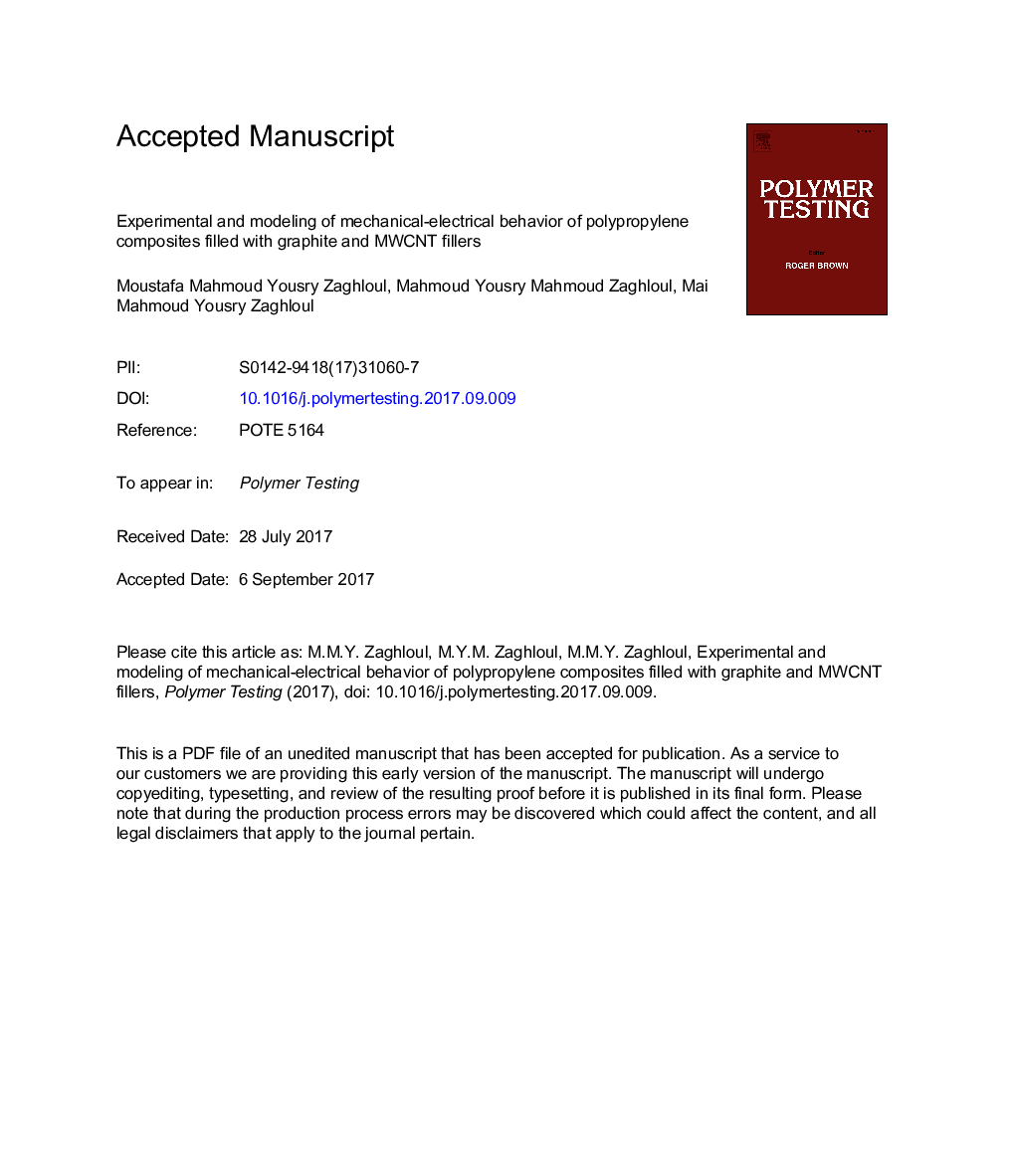| Article ID | Journal | Published Year | Pages | File Type |
|---|---|---|---|---|
| 5205283 | Polymer Testing | 2017 | 34 Pages |
Abstract
The incorporation of carbon fillers can improve the thermal and electrical conductivities of polymer composites but will also have a significant effect on the flexural and tensile behavior. In this paper, two types of carbon fillers were added to polypropylene - carbon nanotubes and synthetic graphite. The influences of these filler materials on the tensile, flexural and fracture toughness characteristics were measured and the electrical conductivity of composites was also investigated. It was observed that the fillers lead to a remarkable increase in the flexural and tensile modulus of polypropylene composites. The maximum flexural and tensile strengths slightly increased with the addition of graphite, however, they were significantly increased in the case of carbon nanotubes because MWCNTs possess exceptional stiffness and strength and their length to diameter ratio is extremely high when compared with graphite. Electrical conductivity of polypropylene composites was evaluated. Noteworthy, composites based on synthetic graphite show a percolation process at one order of magnitude concentration higher than MWCNT filled polypropylene. Fracture toughness results open a wide range of applications for PP-MWCNT composites. Several prediction models were inspected in this research and it was concluded that inverse rule of mixtures model showed the most accurate predictions of the tensile modulus for composites made of polypropylene.
Keywords
Related Topics
Physical Sciences and Engineering
Chemistry
Organic Chemistry
Authors
Moustafa Mahmoud Yousry Zaghloul, Mahmoud Yousry Mahmoud Zaghloul, Mai Mahmoud Yousry Zaghloul,
